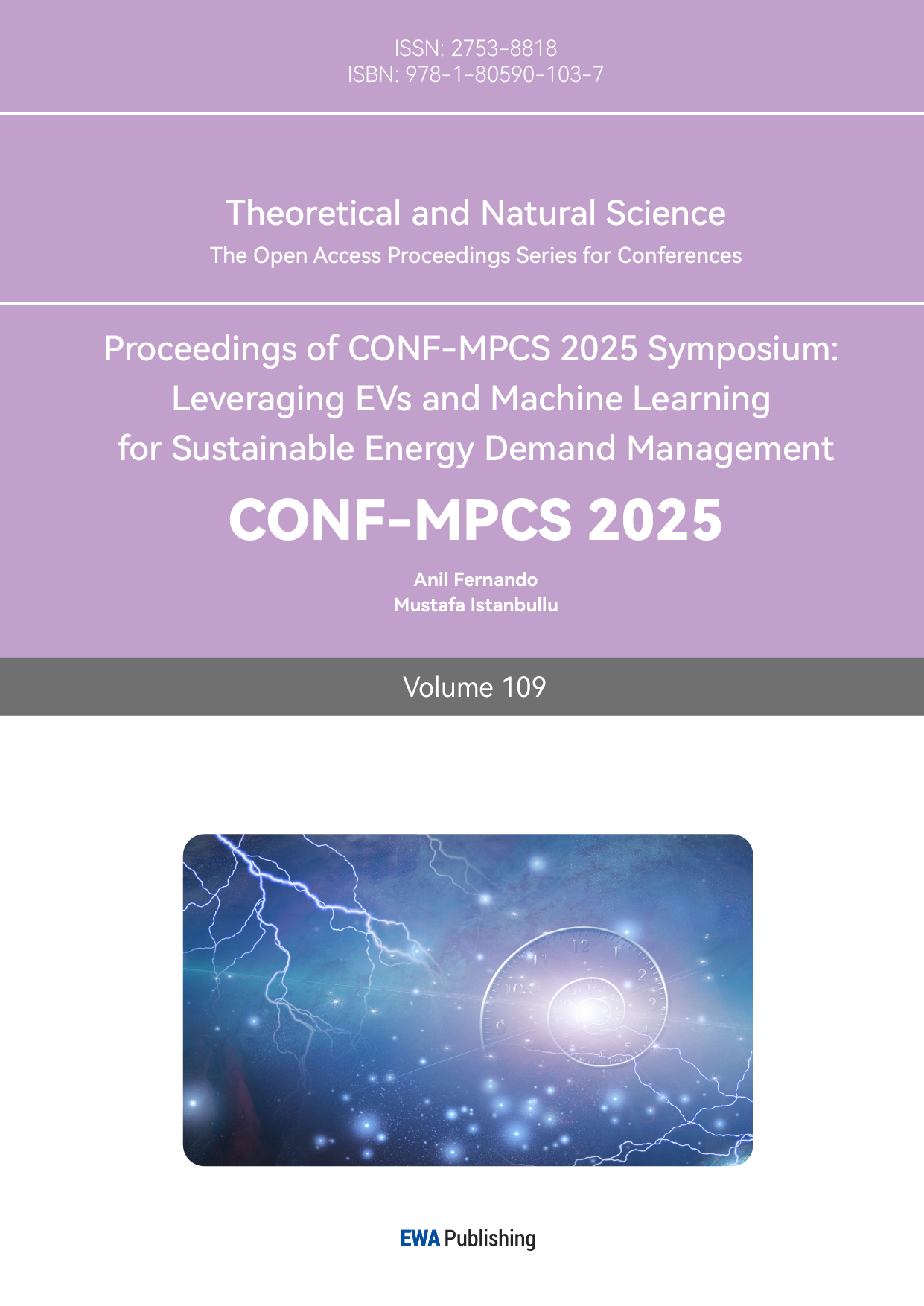References
[1]. NREL. (n.d.). "High-Performance Computing Data Center Power Usage Effectiveness." https: //www.nrel.gov/computational-science/measuring-efficiency-pue.html.
[2]. ScienceDaily. (2021, September 21). "Emissions from Computing and ICT Could Be Worse Than Previously Thought." https://www.sciencedaily.com/releases/2021/09/210910121715.htm.
[3]. Vaswani, A. (2017). Attention is all you need. Advances in Neural Information Processing Systems.
[4]. Kassai, K., Dagiuklas, T., Bashir, S., & Iqbal, M. (2024, June). "GreenBytes: Intelligent Energy Estimation for Edge-Cloud." In IET Conference Proceedings CP879, Vol. 2024, No. 4, pp. 57-61. Stevenage, UK: The Institution of Engineering and Technology.
[5]. Kaggle. (2024, April). "CO2 Emissions (USA)." https://www.kaggle.com/datasets/ abdelrahman16/co2-emissions-usa?resource=download.
[6]. (2024). "Chasing Carbon: The Elusive Environmental Footprint of Computing." https://ar5iv.labs.arxiv.org/html/2011.02839.
[7]. The MIT Press Reader. (2022, February 22). "The Staggering Ecological Impacts of Computation and the Cloud." https://thereader.mitpress.mit.edu/the-staggering-ecological-impacts-of-computation-and-the-cloud/.
[8]. International Energy Agency. (2024). "Electricity 2024." https://www.iea.org/reports/electricity- 2024. Licence: CC BY 4.0.
[9]. Chinnici, A., Ahmadzada, E., Kor, A., De Chiara, D., Domínguez-Díaz, A., De Marcos Ortega, L., & Chinnici, M. (2024). "Towards Sustainability and Energy Efficiency Using Data Analytics for HPC Data Center." Electronics, 13(17), 3542.
[10]. IEEE. (2024, April). "An Efficient Energy Consumption Prediction Framework for High Performance Computing Cluster Jobs." In IEEE Conference Publication, IEEE Xplore. https: //ieeexplore.ieee.org/document/10603495.
Cite this article
Wang,H.;Dang,Y.;Zhang,C.;Richard,R. (2025). Predicting High-Performance Computing’s Carbon Footprint: A Transformer-Based Analysis for Sustainable Development. Theoretical and Natural Science,109,199-210.
Data availability
The datasets used and/or analyzed during the current study will be available from the authors upon reasonable request.
Disclaimer/Publisher's Note
The statements, opinions and data contained in all publications are solely those of the individual author(s) and contributor(s) and not of EWA Publishing and/or the editor(s). EWA Publishing and/or the editor(s) disclaim responsibility for any injury to people or property resulting from any ideas, methods, instructions or products referred to in the content.
About volume
Volume title: Proceedings of CONF-MPCS 2025 Symposium: Leveraging EVs and Machine Learning for Sustainable Energy Demand Management
© 2024 by the author(s). Licensee EWA Publishing, Oxford, UK. This article is an open access article distributed under the terms and
conditions of the Creative Commons Attribution (CC BY) license. Authors who
publish this series agree to the following terms:
1. Authors retain copyright and grant the series right of first publication with the work simultaneously licensed under a Creative Commons
Attribution License that allows others to share the work with an acknowledgment of the work's authorship and initial publication in this
series.
2. Authors are able to enter into separate, additional contractual arrangements for the non-exclusive distribution of the series's published
version of the work (e.g., post it to an institutional repository or publish it in a book), with an acknowledgment of its initial
publication in this series.
3. Authors are permitted and encouraged to post their work online (e.g., in institutional repositories or on their website) prior to and
during the submission process, as it can lead to productive exchanges, as well as earlier and greater citation of published work (See
Open access policy for details).
References
[1]. NREL. (n.d.). "High-Performance Computing Data Center Power Usage Effectiveness." https: //www.nrel.gov/computational-science/measuring-efficiency-pue.html.
[2]. ScienceDaily. (2021, September 21). "Emissions from Computing and ICT Could Be Worse Than Previously Thought." https://www.sciencedaily.com/releases/2021/09/210910121715.htm.
[3]. Vaswani, A. (2017). Attention is all you need. Advances in Neural Information Processing Systems.
[4]. Kassai, K., Dagiuklas, T., Bashir, S., & Iqbal, M. (2024, June). "GreenBytes: Intelligent Energy Estimation for Edge-Cloud." In IET Conference Proceedings CP879, Vol. 2024, No. 4, pp. 57-61. Stevenage, UK: The Institution of Engineering and Technology.
[5]. Kaggle. (2024, April). "CO2 Emissions (USA)." https://www.kaggle.com/datasets/ abdelrahman16/co2-emissions-usa?resource=download.
[6]. (2024). "Chasing Carbon: The Elusive Environmental Footprint of Computing." https://ar5iv.labs.arxiv.org/html/2011.02839.
[7]. The MIT Press Reader. (2022, February 22). "The Staggering Ecological Impacts of Computation and the Cloud." https://thereader.mitpress.mit.edu/the-staggering-ecological-impacts-of-computation-and-the-cloud/.
[8]. International Energy Agency. (2024). "Electricity 2024." https://www.iea.org/reports/electricity- 2024. Licence: CC BY 4.0.
[9]. Chinnici, A., Ahmadzada, E., Kor, A., De Chiara, D., Domínguez-Díaz, A., De Marcos Ortega, L., & Chinnici, M. (2024). "Towards Sustainability and Energy Efficiency Using Data Analytics for HPC Data Center." Electronics, 13(17), 3542.
[10]. IEEE. (2024, April). "An Efficient Energy Consumption Prediction Framework for High Performance Computing Cluster Jobs." In IEEE Conference Publication, IEEE Xplore. https: //ieeexplore.ieee.org/document/10603495.









